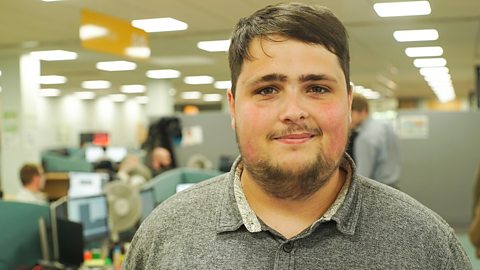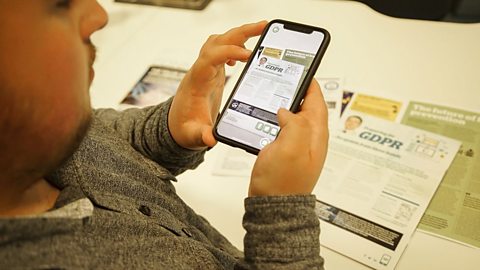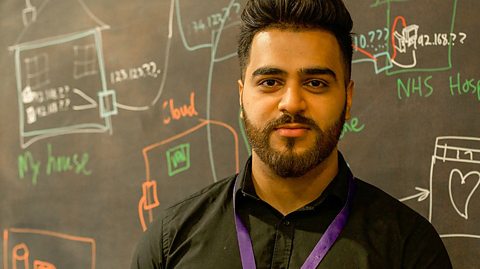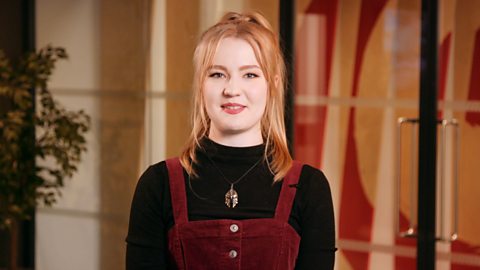

I wanted to make video games but it turned out I was a terrible artist, so I wanted to find another way for me to be involved in making games.
Age
23
In my job
I work at a software development company called Synectics Solutions, where I have a web development role and work on a mobile augmented reality app that clients use with a magazine. When people download the app and scan a picture in the magazine, it can play a video that goes alongside the article they are reading. I use HTML code, Javascript and my knowledge about code and software design.

At school
I took ICT GCSE which was a lot of spreadsheets! I also studied English, Maths, Science, History, Business, Graphics and German.
At college
I realised I wanted to get into programming. I did a lot of Graphic Design and that now really helps with the app development part of my job. I pull in skills that aren’t necessarily programmer skills. I graduated with a triple distinction in Interactive Media which was surprising to me. I think I became better at education because I was more interested in the subject.
At university
I did a BSc (Bachelor of Science) in Computer Game Design and Programming. As the years went on I became really interested in making mobile games. I was covering it on my course and then using them in my spare time.


What to expect if you want to be an app developer
- App developer average salary: £21,000 to £55,000 per year
- App developer typical working hours: 37 to 40 hours per week
What qualifications do you need to be an app developer?
You could get into this role via a university course or a degree apprenticeship. You'll usually need one to two A-levels, or equivalent, for a foundation degree or higher national diploma and two to three A-levels, or equivalent, for a degree. Alternatives to A-levels include taking a T-level (England-only), which is equivalent to three A-levels. You'll usually need four to five GCSEs at grades 9 to 4 (A* to C) and A-levels, or equivalent, for a higher or degree apprenticeship. Check with your course provider which alternative qualifications they accept.
Sources: LMI for All, National Careers Service, GOV.UK.
This information is a guide and is constantly changing. Please check the National Careers Service website for the latest information and all the qualifications needed and the GOV.UK website for more on T-levels.
For careers advice in all parts of the UK visit: National Careers Service (England), nidirect (Northern Ireland), My World of Work (Scotland) and Careers Wales (Wales).


Work experience in your area
Find work experience placements with Workfinder.
Tips and advice
Help with interviews, writing a CV and all things work experience related.


Inshal: intern on a medical app
Inshal works on medical apps, testing for safety and quality.

Pauline: coder. video
Pauline uses code to create and manage websites.

Rhianne: games designer. video
Rhianne designs and tests video games.
